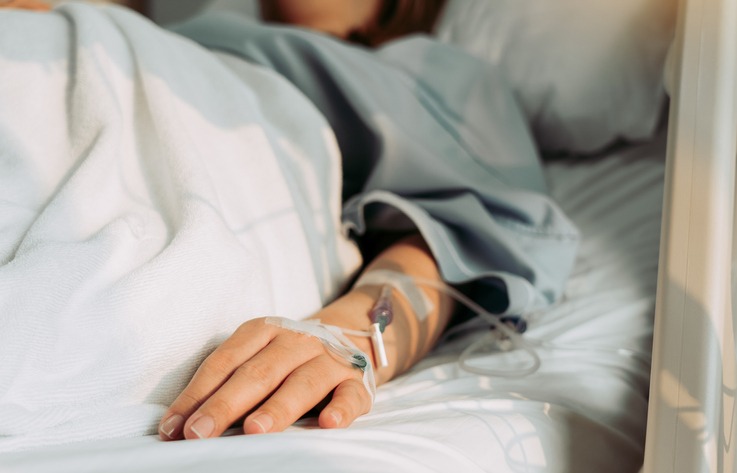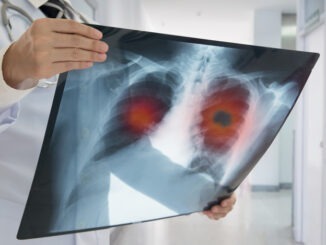
As reported by The Times, analysis from Cancer Research UK has revealed that nearly 40,000 cancer patients have suffered potentially life-threatening delays to NHS treatment this year
Cancer Research UK analysis reveals that this year was the worst on record for cancer care, with NHS performance deteriorating across key monthly targets — all of which are being missed.
Four in ten cancer patients are having to wait longer than the two-month target to start treatment such as chemotherapy, surgery or radiotherapy, endangering chances of survival.
For some types of cancer, including lung and bowel, more than half of NHS patients are not starting their treatment within this 62-day target, according to the monthly data for June, published yesterday.
Overall, in the six months since January when Rishi Sunak made his pledge to cut waiting lists, 37,200 cancer patients in England have not started diagnosis treatment within two months. This treatment target has not been met since 2015 but has reached new lows this year. Naser Turabi, from Cancer Research UK, said the decline in treatment stretched back five years.
“It has just been getting worse and worse over that time,” he said. “Early diagnosis and treatment for cancer is incredibly important and can have a big impact on the success of treatment. We’re seeing really worrying delays.”
Turabi said the impact of the delays would not become apparent for a few years but they posed a “real risk” to survival. Research estimates that every four-week delay in cancer surgery increases the risk of dying by up to 8 per cent. He added: “Some of the worst delays are for types of cancer which are fast-progressing. With lung cancer only 47 per cent of patients are getting treated within 62 days and bowel cancer is down at 42 per cent.
“The effect of waiting for a diagnosis or treatment . . . takes a huge toll on mental health. If you’ve got cancer . . . every day matters.”
Turabi said strikes at hospitals had “added some pressure” but the missed targets “represent years of underinvestment” by the government.
“These unacceptable waits can be turned around with political leadership on cancer,” he said. “Without bold action, more people will miss out on life-saving services.”
Family doctors made 261,000 urgent referrals in June for patients with cancer symptoms, such as a persistent cough or a worrying mole. This is a 13 per cent increase from 231,868 the previous year. The NHS is also missing its target for patients to be seen by a specialist or have tests within two weeks of being referred by a GP. Only 81 per cent of those who received an urgent referral were seen within two weeks in June.
Minesh Patel, head of policy at Macmillan Cancer Support, said the numbers “yet again reflect the UK government’s bleak record”.
Professor Pat Price, of the #CatchUpWithCancer campaign, said: “These figures confirm that cancer treatment performance remains around record low levels and that deadly delays remain baked into cancer treatment.”
The NHS said demand on hospitals was higher than ever, with 29,479 patients starting treatment for cancer in June, close to record levels. It added that progress was being made on cutting the longest waits, despite A&Es experiencing their busiest summer ever.
Professor Julian Redhead, NHS England’s national clinical director for urgent and emergency care, said: “Hard-working staff are delivering improvements in urgent and emergency care waiting times while also tackling the backlog by doing more tests and checks than any July on record.”
Separately, the National Institute for Health and Care Excellence has given approval for nine artificial intelligence platforms to be used to spot cancer. It said the technology could help to save doctors hundreds of thousands of hours and relieve “severe pressure” on radiology departments.


Be the first to comment